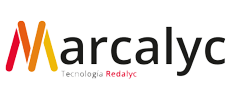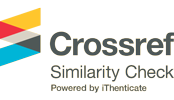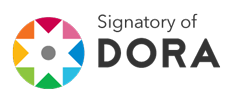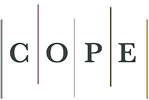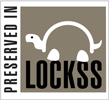Ethics Statement
Declaration of ethics and negligence Revista Prohistoria
The editors of this journal assume general responsibility for what is published. However, each author is personally responsible for the opinions expressed as well as for the veracity of their statements and the ethics of their research.
Besides, it is our duty to maintain and improve the quality of this journal, which is why we guarantee the academic quality of the material that is published defending freedom of expression and making each article go through two evaluation processes: a first examination by the members of the council of writing who decide on the orientation of the areas, themes and qualities of the works that will be selected. Based on the importance, originality, clarity of the article and its relevance to the journal program, articles are selected for the second evaluation. This is made by anonymous pairs (minimum two) by the double-blind review.
We strongly suggest authors who send their texts to inform the origins of the funds used to finance the investigation.
The material sent for publication is confidential until its review and evaluation process are finished.
Articles published in REVISTA PROHISTORIA shall respect the standards to which the Editorial Committee of the journal adheres.
In the event that the editor or directors of the journal have knowledge of misconduct in the investigation or there has been an accusation of misconduct, they will deal with it in accordance with the recommendations established by the http://www.icmje.org/recommendations/ and the Committee on Publication Ethics (COPE), both identified in this document.
Anyone who considers that the research has not complied with the ethics guidelines can communicate via email revistaprohistoria@yahoo.com.ar and raise the situation with the editor of the journal.
Peer review
REVISTA PROHISTORIA opted from its first edition for a peer review evaluation policy with external, anonymous and double blind evaluators that guarantees confidentiality in the review process. In the event of any anomaly that is detected in the editorial process, editors and evaluators shall inform to inform revistaprohistoria@yahoo.com.ar.
The role of the reviewer is to evaluate the quality of the manuscripts content for publication. In this sense, they analyze the articles, the scope of the research, the pertinence, originality, accuracy, relevance and readability. The evaluators/reviewers analyze the content and the analytical and investigative quality of the articles. They can comment approve or reject the paper. The term established for this process is 30 days at most. The peer review process is important to meet the scientific and ethical standards required by the scientific community in human and social sciences. Revista Prohistoria follows the advice of the COPE Ethical Guidelines for Reviewers to determine whether to accepts a manuscript for evaluation (see: https://publicationethics.org/resources/flowcharts/what-consider-when-asked-peer-review- manuscript) and the considerations to take into account in the review process (see: https://publicationethics.org/peerreview).
Author
REVISTA PROHISTORIA adheres to the Open Access policy and does not charge fees to authors to publish, nor to readers to access published articles.
According to the criteria established by ICJME and COPE, each author must have complied with the four authorship criteria:
“1. Substantial contributions to the conception or design of the work; or the acquisition, analysis, or interpretation of data for the work; and
2. Drafting the work or revising it critically for important intellectual content; and
3. Final approval of the version to be published; and
4. Agreement to be accountable for all aspects of the work in ensuring that questions related to the accuracy or integrity of any part of the work are appropriately investigated and resolved.”
Other types of contributions must be specified but they are not comparable to authorship.
Whoever submits a paper to REVISTA PROHISTORIA must attach a publication request letter containing the complete information of each author (name, surname, place of affiliation or work, biographical information), contact information (address, telephone and e-mail) and a statement that the paper has not been published in whole or in part, nor sent to another journal or medium for publication or evaluation. It must also be declared that there are no conflicts of interest with authors or institutions. In the event of honest or unintentional publication error, authors are obliged to provide retractions or corrections.
Plagiarism
REVISTA PROHISTORIA adheres to the Committee on Publication Ethics (COPE), understanding as plagiarism “When somebody presents the work of others (data, words or theories) as if they were his/her own and without proper acknowledgment”.
The following listed and explained practices are considered plagiarism:
1. Direct plagiarism:
- Omission of authorship and fragments gathered from other texts not stated between quotation marks.Minimal changes made to a text by another author (the structure of the sentence is modified, lowercase is substituted for uppercase or vice versa, synonyms are used, etc.) and submitted as original work.
2. Plagiarism due to inappropriate use of paraphrase:
- Although authorship is quoted, the original text is reproduced with a few changes that are not paraphrased.
3. Complex plagiarism using a reference:
- The original authorship reference exists, but the source pages are inaccurately quoted.
- Paraphrasing that summarizes long texts, but there is little or no indication that they correspond to a paraphrase.
- Absence of quotation marks in words and phrases of the original text that are reproduced verbatim.
4. Plagiarism with misleading quotation marks:
- An exact quotation continues after quotation marks have been closed or the preceding sentences corresponding to the same quotation marks are not included therein.
5. Paraphrasing as plagiarism:
- There is paraphrasing and the reference to the original source is not quoted.
- Paraphrasing is continuous and extensive, facts are added to allow interaction or enrich the information, even though the source is quoted.
- Academic works ─which require original thoughts and critical reflections on other authors’ stances─ become texts that only repeat other academic texts.
- The paraphrased passages are not clearly identified as such.
Plagiarism is not considered if:
- It is not influential in the work of the author.
- It is used to allow the author to critically interact with other authors’ stances.
- The argument of the original text is rewritten using different words.
6. Recycling fraud or "self-plagiarism":
- The appearance of the work is modified and it is presented as if it were a new one.
b. It is not mentioned that the work has been recycled, that is, it is a previously published work but some corrections and additions have been made.
Self-plagiarism is not considered if: - A previous work serves as the basis for a new contribution, and key fragments must be repeated to explain and defend new arguments.
- The authors consider that what they have stated cannot be formulated in a better way for the new work.
- Repetition does not exceed 30% of the original work.
Readers, reviewers and editors are requested to report suspected plagiarism to revistaprohistoria@yahoo.com.ar.






